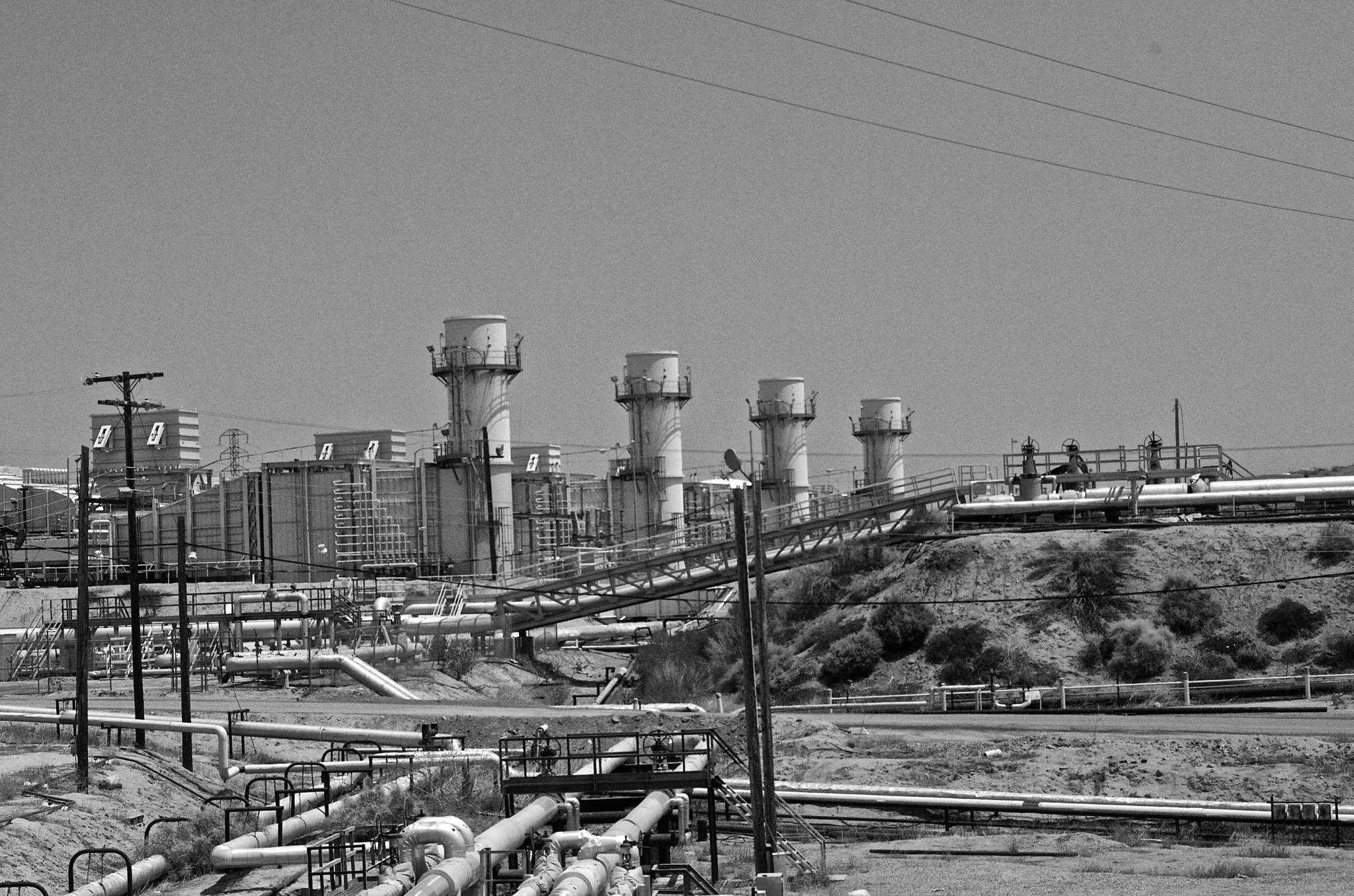Photo by Jerry Mathes II
Monitoring Team – John Collins, Bogdan Polishchuk
- Saudi Arabia Plans $2 Trillion Megafund for Post-Oil Era
In the preparation for the ‘post-oil era’, Saudi Arabia is planning steps to diversify the economy. One of such steps is the IPO and resulting sale of up to 5% in Aramco field by 2018, as announced Saudi Arabia’s Deputy Crown Prince Mohammed bin Salman. He announced this in tandem with the unveiling of a megafund with cash reserves large enough to buy the world’s four largest publicly traded companies. This announcement comes at a time of structural change in the Saudi economy, as the government seeks to reduce the deficit by increasing the prices of fuel and electricity and in general to cut down on wasteful government spending. Moreover, the PIF (Public Investment Fund) plans to pivot away from what is currently almost exclusively a domestic investment portfolio, and to raise the proportion of the fund’s foreign investments to parity with its domestic investments. Finally, a “National Transformation Plan” will be announced within a month, delineating the path towards economic diversification and sustainability that will include steps towards generating non-oil revenue streams. Measures will include additional fees and a value-added tax.
John Micklethwait, 2016. Saudi Arabia Plans $2 Trillion Megafund for Post-Oil Era: Deputy Crown Prince. Bloomberg News, 2 April 2016. http://www.bloomberg.com/news/articles/2016-04-01/saudi-arabia-plans-2-trillion-megafund-to-dwarf-all-its-rivals
- Rosneft Reports Rise in 2015 Net Profit, Drop in Debt
Rosneft reported a 2% rise in 2015 net profits and a significant decrease in debt, alleviating investor concerns. However, after incurring huge debts in the purchase of TNK-BP in 2013, unease remains concerning the feasibility of Rosneft’s plans to raise levels of capital expenditure in order to maintain production in the “browning” fields of Western Siberia. Hit by Western sanctions, the firm has struggled to maintain its level of production in the aging fields, although cost controls have mitigated the effects of a 16% fall in Russian flagship Urals Crude blend (in Ruble terms).
Vladimir Soldatkin, 2016. Rosneft reports rise in 2015 net profit, drop in debt. Reuters, 31 March 2016. http://uk.reuters.com/article/uk-oil-co-rosneft-results-idUKKCN0WX0YI
- Argentina, the EU, and WTO Rules for Bio Diesel
The WTO ruled in favor of Argentina in a dispute with the EU over its bio-diesel imports. The EU accuses Argentina of “dumping” its biodiesel on the European market, claiming they are selling their product at a price below production costs in order to price competitors out of the market. The EU acted on this claim in 2013, placing dumping restrictions on Argentinean exported biodiesel. Argentina, the world’s top producer of biodiesel fuel, has called these measures “protectionist” although they also have imposed restrictions on trade in an effort to spur demand for domestic products.
WTO rules for some Argentina claims in EU anti-dumping biodiesel duty row. Reuters, 29 March 2016. http://en.mercopress.com/2016/03/30/argentina-wins-a-first-round-at-the-wto-over-a-biodiesel-controversy-with-the-eu
- Papua New Guinea: Interoil to Reduce Spending
Last year, Papua New Guinea Based Inter-Oil “re-structured and streamlined” their business operations. In accordance with this process of reducing expenditures, this past week they announced they will cut spending by around $170 million for the fiscal year of 2016. The cuts will mostly affect the Papua LNG project, as Interoil looks to improve liquidity and diminish its perceived credit risk. They hope to increase their access to credit as the year progress as they work in tandem with Total on the LNG project. Gas in Papua-New Guinea’s Antelope field is reportedly of excellent quality.
Interoil to reduce 2016 Spending $155-170 mn. Natural Gas Asia, 31 March 2016. http://www.naturalgasasia.com/interoil-to-reduce-2016-spend-to-155-170-mn-18101
- Nigeria: Oil and Gas to Raise up to $503 million to Fund Expansion
Nigeria’s Forte Oil is planning to raise slightly more than $500 million (100 billion Naira) in order to expand its operations in the country. They will raise the funds through typical capital raising processes such as bond and share offering, the issuance of rights, and through the provision of global depository receipts. They look to expand their upstream operations in order to “bolster” the bottom line in the wake of reported profits in excess of 7 billion Naira in 2015 (up from circa 6 billion Naira in 2014). This comes at a time when Nigeria, Africa’s largest economy, is suffering from decreased oil-export revenues while their oil sector has been further compromised by acts of sabotage.
Oludare Mayowa, 2016. Oil & Gas: Nigeria’s Forte Oil to raise up to $503 mln to fund expansion. The Africa Report, 31 March 2016. http://www.theafricareport.com/West-Africa/oil-a-gas-nigerias-forte-oil-to-raise-up-to-503-mln-to-fund-expansion.html
- The Caspian: Bribery scandals with Unaoil
In 2007, Unaoil (provider of such services as market information, assistance in project development, recruitment of local professionals, facilities, etc. ) was contracted by the former Aker Kvaerner to assist with project execution in the Caspian Sea region, including the Kashagan project. In 2011 the current Kvarner was established, taking over a subsidiary the former Aker Kvaerner. The utilisation of Unaoil as service provider was certified by Trace International and audited by PwC. Kvaerner obtained an independent integrity assessment from third-party integrity specialists. However, claims have been made that Kvaerner transferred money to Unaoil through offshore bank accounts. Though this is disputed, payments in connection with projects in the Caspian Sea were allegedly made to Unaoil’s account in Monaco, where the company is based, as well as to an account in Norway. Since 2011, Kvaerner has not had any additional projects in the Caspian Sea nor have they used Unaoil as a service provider.
Kvaerner dragged into major bribery scandal involving Unaoil. Your Oil and Gas News, 1 April 2016. http://www.youroilandgasnews.com/kvaerner+dragged+into+major+bribery+scandal+involving+unaoil_129944.html
- Gazprom and OMV sign documents to further develop strategic cooperation
Alexey Miller, Chairman of the Gazprom Management Committee, and Rainer Seele, Chairman of the Executive Board of OMV AG, have come to an agreement aimed at further development of the strategic cooperation between the two companies. The signing ceremony was held In the presence of the Russian Federation’s Minister of Energy, Alexander Novak, as well as Austria’s Minister of Finance, Hans Joerg. Suhail Al Mazrouei, the Minister of Energy of the United Arab Emirates, was also in attendance at the meeting which took place in St. Petersburg.
Gazprom and OMV sign documents to further develop strategic cooperation. Your Oil and Gas News, 1 April 2016. http://www.youroilandgasnews.com/news_item.php?newsID=129957
- Russia Tries New Tactic Ahead of Crucial $50 Billion Yukos Ruling
More than a decade after the giant oil company was dismembered and largely re-nationalized, a group of its former shareholders continue to pursue the $50 billion in damages awarded to them by the Permanent Court of Arbitration in The Hague. Russian authorities are appealing the ruling and will use costly and time consuming legal tactics to ensure the ruling will not be enforced for many years to come, if at all. On March 25, they made their latest counter-attack. Investigators allege they were “close to proving” that Mikhail Khodorkovsky, Yukos’s former chief executive, and his business associates had stolen their shares in the company. Vladimir Markin, the spokesman for the Investigative Committee, said the businessmen had rigged an auction for a stake in Yukos in 1995 and then transferred the shares to an array of subsidiaries (shell companies) to disguise the fraud. However, Russia has been making this “dirty hands” argument for years and the PCA, in what could be a landmark precedent for investors, has ruled that no matter how the assets have been acquired, if private assets are appropriated by a government subject to the Energy Charter Treaty, then the government must pay damages. There is no enforcement mechanism that can force the Russian government comply with the ruling, so the issue of compensation should remain outstanding for a long time to come.
Peter Hobson, 2016. Russia Tries New Tactic Ahead of Crucial $50 Billion Yukos Ruling. The Moscow Times, 30 March 2016. http://www.themoscowtimes.com/business/article/russia-tries-new-tactic-ahead-of-crucial-50-billion-yukos-ruling/564027.html
- The U.S. Is a Big Oil Importer Again
In the three months since the U.S. lifted its 40-year ban on crude oil exports, the unexpected has transpired. Instead of flooding global markets, U.S. crude shipments to foreign buyers have stagnated. Simultaneously, imports into the U.S. have reached a three-year crescendo in a seeming reversal of a decline in the quantity of foreign crude brought into the American market. As of March 25, the four-week average of imports had reached 7,9 million barrels a day, 9,8% increase over last year. Such an increase is seen as more than an aberration and instead as more of a general trend. U.S. producers have lost the competitive advantage that they had over competitors in selling to domestic refineries during the heyday of the Shale revolution. Consequently, U.S. crude production has fallen by about 600,000 barrels a day from its peak of 9,6 million in 2015. Refineries are buying foreign oil to replace this lost output and storing it until prices reach a more reasonable level.
Matthew Phillips, 2016. The US is a Big Oil Importer Again. Bloomberg Businessweek, 31 March 2016. http://www.bloomberg.com/news/articles/2016-03-31/the-u-s-is-a-big-oil-importer-again
- Russian Oil Output Rises to Record as Freeze in Doubt
The freeze allegedly agreed to by the Saudi’s and Russians, at the behest of several OPEC countries brought to their knees by low prices, has not deterred the Russian’s from expanding their production to post-Soviet era highs. This fact could, as has been hinted, trigger a Saudi output increase, as the largest producers compete to retain market share. Therefore, price volatility and over-supply in all markets seems likely for at least the near future, with the largest producers unable to collude successfully to stabilize international energy markets. Furthermore, Iran never agreed to any such freeze in the first place, and in the wake of sanctions being lifted, Iranian increase in production was seen by analysts as a counterweight to any agreement reached by the other major players.
Jake Rudintsky, 2016. Russian Oil Output Rises to Record as Freeze in Doubt. Bloomberg Businessweek, 2 April 2016. http://www.bloomberg.com/news/articles/2016-04-02/russian-oil-output-rises-to-record-as-production-freeze-in-doubt

